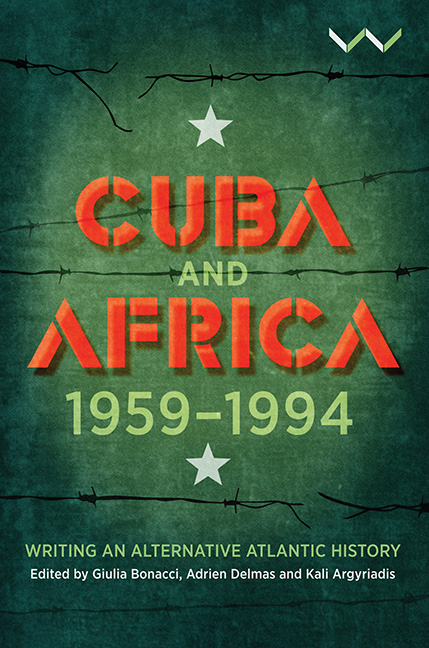Book contents
- Frontmatter
- Contents
- Figures and Table
- Foreword
- Acknowledgements
- Acronyms and Abbreviations
- Timeline of Historical Events
- Map of Africa, 1994
- Introduction Reconfiguring the Cuba–Africa Encounter
- Part I Politics and Solidarity
- Part II Trajectories
- Part III Voices
- Part IV Reconstructing History, Reconnecting Roots
- Contributors
- Index
Chapter 6 - Cuban-Congolese Families: From the Fizi-Baraka underground to Havana
Published online by Cambridge University Press: 15 June 2021
- Frontmatter
- Contents
- Figures and Table
- Foreword
- Acknowledgements
- Acronyms and Abbreviations
- Timeline of Historical Events
- Map of Africa, 1994
- Introduction Reconfiguring the Cuba–Africa Encounter
- Part I Politics and Solidarity
- Part II Trajectories
- Part III Voices
- Part IV Reconstructing History, Reconnecting Roots
- Contributors
- Index
Summary
Well before the Cuban intervention in Angola in November 1975 and Havana's decisive contribution to the liberation of southern Africa, the present Democratic Republic of Congo (DRC) was a test bed for Cuba's geopolitical projection into the heart of Africa. Indeed, in April 1965, four years after the assassination of prime minister Patrice Lumumba in January 1961, Che Guevara crossed Lake Tanganyika in secret to lend support to the resistance fighters of the National Council of Liberation (CNL), led by Gaston Soumialot, Christophe Gbenye and Laurent-Désiré Kabila. For Havana, the focus of the revolution turned to Africa, then considered the underbelly of the ‘Western imperial system’.
Cuba's leaning towards Africa relied equally on considerations of identity, linked to the African footprint and presence on the Caribbean island: Afro-Cubans (slaves and free people of colour) made up an important part of the mambises, the guerrilla fighters of the late-nineteenth-century Cuban wars of independence. Likewise, the origins of one of the main Cuban syncretic movements, the palo-monte cult, lay in the Congo Basin and north-western Angola. But, more importantly, ‘Cuba's African odyssey’ aimed at enlarging, thanks to the alliance with ‘African progressive movements’, the scope of a world revolution in line with the Guevarist vision.
From April 1964, the seizure of three-quarters of Congolese territory by the supporters of Patrice Lumumba gave strength to the notion that a revolution in Congo would herald a much vaster movement of emancipation. Nevertheless, the disorganisation of the Congolese rebels and the differences of views between their leaders, as well as an inadequate assessment of the balance of power on both the regional and international scale, got the better of the guerrillas of eastern Congo. The Congolese revolutionaries, supported by a Cuban expeditionary force of barely a hundred advisers, faced a vast coalition consisting of the Congolese regular army, joined by European, South African and Rhodesian mercenaries, as well as anti- Castro elements who had escaped the failed Bay of Pigs expedition. The Western powers, who detected a communist menace behind the ongoing crisis in the Congo, consequently lent decisive support to the government in Léopoldville (now Kinshasa).
- Type
- Chapter
- Information
- Cuba and Africa, 1959-1994Writing an Alternative Atlantic History, pp. 130 - 158Publisher: Wits University PressPrint publication year: 2020



